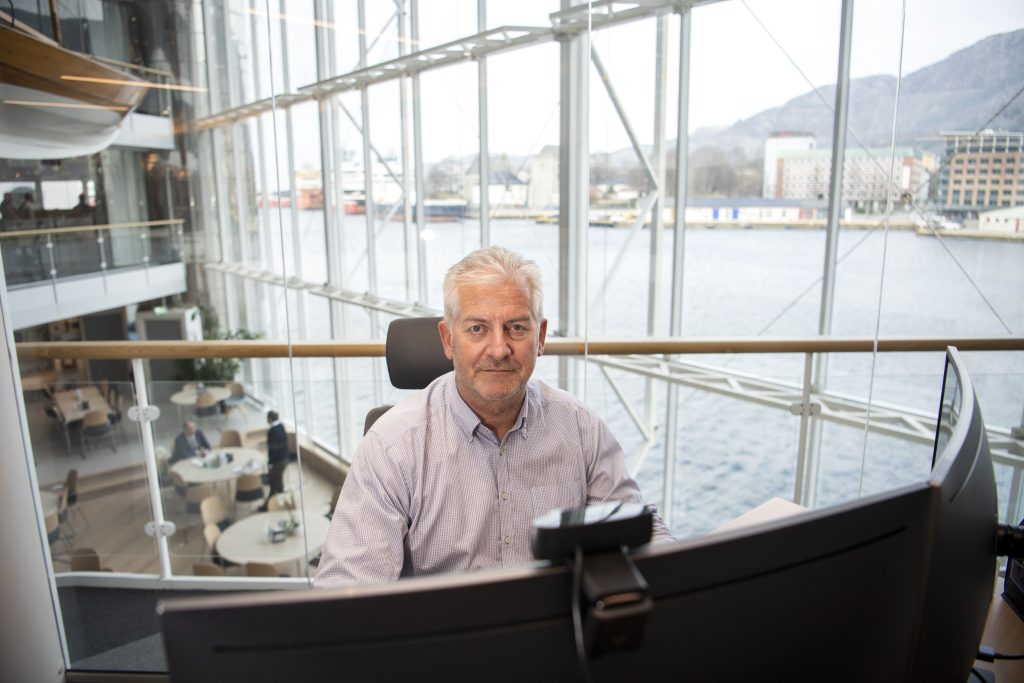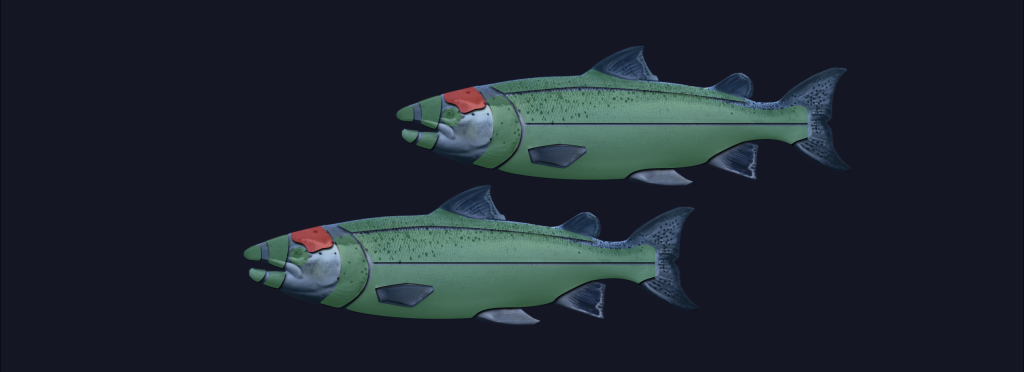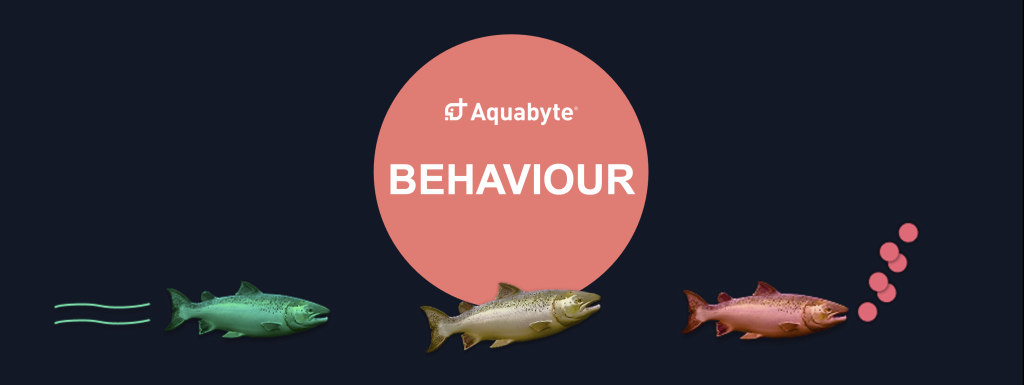-Fact-based insight is the key phrase here, and we must gain a better understanding of the interaction between fish and the environment, says CDO Trond Kathenes in Grieg Seafood. – The journey towards data-driven and autonomous fish farms takes longer than many have imagined. And it has several interesting dimensions.
-The complexity of biological production is challenging. Many factors occur simultaneously and represent a universe we have to deal with using facts as tools. Conditions in various pens change from year to year, and it takes a long time to verify a hypothesis. The production cycle is between 12 and 18 months at sea, so temperature, current, and precipitation come into play. It is a complex interaction, but our vision remains the same, even if the journey takes a little longer.
Building trust between data and experience
-Another interaction that is extremely interesting is to create synergies between fact-based and experience-based understanding. In other words; we must build trust between data and experience. If you do this, we can open many doors. One can often experience “energy leaks” here when disagreements arise about how to optimize the interaction between data and experience in practice. In our industry, holistic approaches are required – and there are many, especially on the supplier side, who must deeply understand this interaction.
An incredibly exciting journey and learning curve
What do the fish farms of the future look like?
-First we have to find out where it actually is. On shore? Is it closed or semi-closed? Is it close to the coast or out to sea? The larger the distance, the more autonomous they must be. Fully autonomous facilities require huge investments. In addition, we really have to control both supervision, infrastructure, and the biology side. Machine learning and artificial intelligence will teach us a lot in the time to come; movements and behavior, early signs of impaired health, etc.
-This is a steep learning curve for both camps; both data and experience. At Grieg, we have come a long way, and have, for example, put together many good sets of analyses. We share the same side of the table and everyone sees new connections when the dialogue is good.
Important priorities and new hypotheses
-We need more knowledge about the current biological conditions for fish welfare in the pen. We are talking about hypotheses, data collection, and collaboration. Therefore, we must learn more about the interaction between what has taken place in the freshwater phase and what happens in the seawater phase. Which framework conditions in freshwater affect how the fish do in the sea. Similarly, we see that the fish’s genetics are of great importance in response to how the fish grow in various conditions.
-The datasets we analyze are important to be able to optimize and learn more. Some will have their gut feeling confirmed, others will experience a revelation. Findings in the data can also point in the opposite direction of experience-based hypotheses.
In such scenarios, it is important to have close and good collaboration between data analysis and experience-based competence.
How does digitalization change the Grieg Seafood’s supplier portfolio; do you get a new set of partners?
-Yes. We see that new software suppliers and players on the sensor side have entered directly at the right level when it comes to open technology, while established suppliers can struggle with technical debt, and therefore risk being ‘disrupted’. This is slowly but surely happening for the industry, and it is great to see that new companies with less technological debt are now positioning themselves competitively. Our industry is in a time of upheaval, and we are looking for those who can make us better in a window of opportunity for new and better hypotheses.
With such a backdrop; what qualities are you looking for in a supplier?
-We look for those who can make us even better, and approach our industry with a humility in relation to the complexity we face. Here we do not believe in any quick fixes. Our partners must understand the complexity and meet us at the halfway point that means working shoulder to shoulder. Aquabyte has a valuable aquacultural background. They are able to combine experience with data capture, and at the same time communicate well both at the edge of the pen and with those who dive deep into the algorithms. We are looking for partners who can meet us in our arena, and who match our in-depth expertise.
-We are looking for a long-term cooperation that helps to make the entire value chain on our side good. Help us to become ‘best in class’, and here the partner role is important. Those in charge of cloud computing factories or computer applications need to understand this. Our industry consists of many, both large and small players – with different capacities. We are looking for those who have really opened their eyes to the value of data, and who, in parallel with a heavy professional discussion down in the algorithms, master the practical approach. Bringing a camera is not enough. Aquabyte has understood this.
-Cooperation is about humility; how good we are in relation to each other. Together we must strive to get better all the time. Our impression is that this culture is present at Aquabyte.





